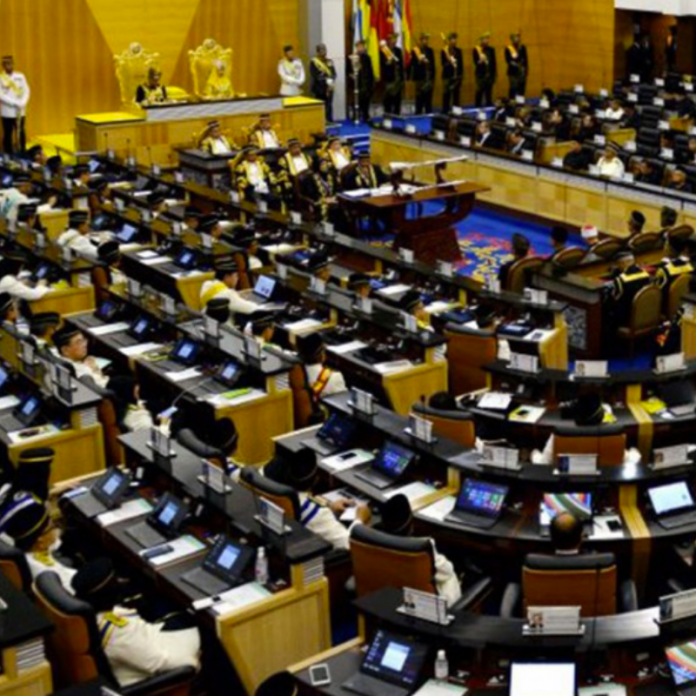It doesn’t matter who is Prime Minister in Malaysia as long as the Cabinet observes the consensus principle i.e. no vote against. I am commenting on an article by DAP leader Liew Chin Tong published in FreeMalaysiaToday.
The Cabinet system, on paper, isn’t based on majority decision.
Except perhaps during Hussein Onn’s time, the Prime Minister in Malaysia either used the Cabinet as a rubber stamp or by-passed it.
That’s how the 51 per cent freight forwarding rule came about. Other issues include disproportionate punishments for drunk driving and breaches of the SOP governing the pandemic, restrictions on the sale of beer and alcohol and the Timah whisky controversy.
Muhyiddin Yassin had to resign on Sunday 16 Aug 2021 because Umno was unhappy with his Administration. If Muhyiddin had observed the consensus principle, he would still be Prime Minister.
Mahathir Mohamad resigned as Prime Minister on Monday 24 Feb 2020. DAP would not allow the Cabinet to be used as rubber stamp, run by majority decision, or by-passed in the decision-making process. The party insisted that the Cabinet abide by the consensus principle.
The consensus principle is the major issue in government, Cabinet and politics in Malaysia. It cannot be circumvented by Ismail Sabri, for example, entering into a Memorandum of Understanding (MoU) with Pakatan Harapan (PH) to thwart his own party. Deja Vu!
History may repeat itself.
The jury may still be out on whether Ismail Sabri, based on the 100 day performance chart, would shake up the Cabinet and Deputy Ministers. There’s a case for extending the talent pool by including technocrats from the Senate.
Ideally, Senators drawn equally from the gov’t and Opposition should make up half the Cabinet and Deputy Ministers. Unlike the gov’t Senators, those from the Opposition would not represent parties.
Likewise, the MPs in the Cabinet and making up Deputy Ministers would be drawn equally from the gov’t and Opposition. Again, the MPs from the Opposition would not represent parties.
A shake-up of the Cabinet and Deputy Ministers would be in line with the spirit of the MoU.
Other Issues
There are also other issues which should be resolved sooner or later or there’s risk of continued political instability, especially in Putrajaya.
Voting in Malaysia, given automatic registration, must not be made compulsory as in Singapore, for example.
That will help reduce the chances of ignorant voters deciding on the government. We can take the cue from the US where the Founding Fathers installed the Electoral College system to prevent “the great unwashed masses” deciding the government in Washington.
Having said that, Malaysia must hold run-offs in seats where no candidate gets 51 per cent or more of the votes counted.
Otherwise, elections will not be democratic as seen in Sarawak recently, especially given the undemocratic pre-election coalition concept forming governments in the face of Opposition disunity.
Local government elections, suspended in 1965 following Indonesia’s “Ganyang Malaysia” (Hang Malaysia) and Konfrontasi (confrontation) campaigns, should be brought back. Most development is local. Taxes should solely be levied at the local government level for sharing with the state/territorial gov’ts and Federal gov’t.
Sabah and Sarawak/Malaya are a study in contrasts on elections.
Opposition disunity in Sabah, unlike in Sarawak and Malaya, may not effect election results.
The people in Sabah have been noted, from time to time, for voting en bloc against the ruling coalition especially if it’s seen to favour the PTI (illegal immigrants) or appears willing to be a proxy government for Putrajaya.
Unconstitutional
The Opposition in Sabah wins seats by default. Usually, there’s a stalemate viz. 50:50 as in GE14 on Thurs 10 May 2018. The government was installed but fell two days later. It may have been unconstitutional, as per the Federal Court’s majority ruling on Wednesday 01 September last year. But let’s not get into that.
Patently, Sabahans do not hesitate to change governments if they are unhappy.
Sabahans, especially the Orang Asal will vote en bloc against parties seen as based on “dubious” voters — read PTI — and candidates seen as having “suspect” backgrounds i.e. originating from PTI. Politics is about public perceptions.
In Sarawak, the people put up with the gov’t even if they are unhappy as the history of uninterrupted gov’t from 1966 shows . The Opposition is seen as anti-national and “anti-gov’t”. In the eyes of the voters, the gov’t coalition is the father and mother. Voting against the coalition is an act of filial disloyalty, even treason.
In Malaya and Sarawak, especially as seen in the latter recently, disunity will virtually wipe out the Opposition.
That happened in Melaka as well where the gov’t parties even took on each other and the Opposition.
Opposition Strength
Unity is key to Opposition strength in Sarawak and Malaya.
Voters must not continue to belabour in the delusion that only race-based parties or someone from their own community will look after their interests.
The number of ethnic-majority seats, especially among non-Malays, will continue to decline.
Already, there are no ethnic majority Indian seats. Still, in 67 parliamentary seats in Malaya, Indians decide. DAP makes use of this factor. Indians don’t vote for DAP but against the government. The party, ostensibly Chinese-based, wins by default.
The emergence of polarisation in Sarawak and re-emergence of polarisation in Malaya cannot be ruled out.
Malays may vote en bloc for the government parties in Malaya and non-Malays vote en bloc against the former. The Opposition parties may win by default. That happened in 2008.
In 2018, there was Opposition unity although PAS contested many seats. The PAS move affected Umno.
In 2023, it remains to be seen whether Umno will eat humble pie and share seats with Perikatan Nasional (PN) or go for broke, win or lose, do or die, as in the recent Melaka snap election.
Umno’s Strength
Umno’s strength can ultimately come only from the party sharing Malay seats with BN, Malays voting for BN parties, and at least a minority of Indian and Chinese voting for BN and Umno. The majority of Indians and Chinese in Malaya are unlikely to vote for race-based parties as seen since 2008. Again, DAP wins by default.
Although there are a number of Malay parties in Opposition in Malaya, they risk being wiped out. However, if they can win a few seats, they will have strong influence on gov’t and make it even more Malay. – New Malaysia Herald
About the writer: Longtime Borneo watcher Joe Fernandez keeps a keen eye on Malaysia as a legal scholar (jurist). He was formerly Chief Editor of Sabah Times. He’s not to be mistaken for a namesake previously with Daily Express. References to his blog articles can be found here.
Note: The points expressed in this article are that of the writer’s, and do not necessarily reflect the stand of the New Malaysia Herald.

Longtime Borneo watcher Joe Fernandez has been writing for many years on both sides of the Southeast Asia Sea. He should not be mistaken for a namesake formerly with the Daily Express in Kota Kinabalu. JF keeps a Blog under FernzTheGreat on the nature of human relationships.


Facebook Comments